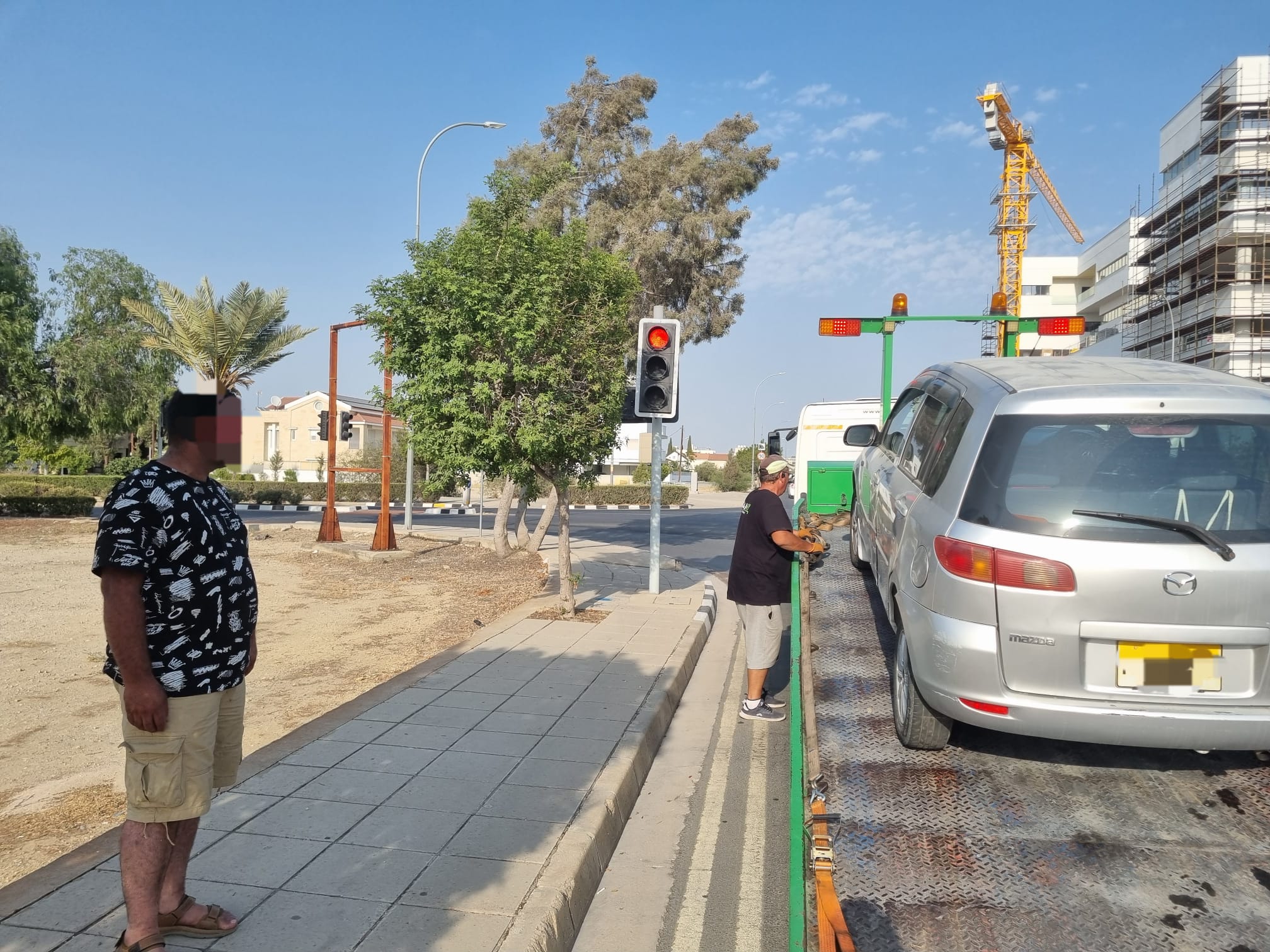A lesson in togetherness from a car breakdown in the searing heat
There’s never a good time to be stranded in your car, and definitely not when it’s 43 degrees Celsius on an August afternoon. Worse still is when you have a crying kitten quaking in the backseat, with a heatstroke only moments away. Add to that already being fifteen minutes late for work, because the car had decided to give up not once, but twice on the way.
The tipping point is officially reached once the car gets to what feels like its final halt at a red light on a key junction on one of the central roads into Nicosia, just as the first tired wave of office workers begins to head back home from their nine to fivers.
So, what does one do? Well, spoiler: while panicking might feel like an appropriate reaction, it offers precisely zero practical benefit – as extensive field experience has proven.
In a situation like this, and with little idea on what could possibly be wrong with an oh-so-reliable Mazda that has for the longest time made a trustworthy companion for exploring the island, despite its 24 years, one finds themself wishing for neat little sinkhole to open up, just big enough for one.
As it is with older cars, things that should theoretically be working not always do. The warning light easily turns into a panic indicator. Now imagine that accompanied by the deafening meowing of a rightfully screaming foster kitten that was supposed to be delivered to its future forever home an hour ago.
Phone at 13 per cent and on the verge of overheating, the charger in the car has given up, just like the air conditioning.
An elderly couple have a heart and stop, their eyes caught by the visibly desperate scene starring a nervously smoking young woman and a red carrier box whose content lets out a deafening meow every 30 seconds.
After almost two years of residing in Cyprus, the vocabulary still does not quite stretch to car parts yet. The pappou understands regardless, and after a brief assessment has equally little idea of what exactly is wrong with the car.
It is decided that recharging the battery is worth a try, even if it doesn’t necessarily look like that’s the issue – though at least one of the three warning lights suggests otherwise.
The elderly gentleman parks their saloon Honda diagonally in front the Mazda while his wife in the passenger seat judges your entire life through the windshield .
Cars pass by, visibly annoyed by the blocked road. But anyone who’s been involved in a similar incident with an automatic vehicle knows: if it stalls, rolling it to the side just isn’t an option.
Another car stops. An off-duty police woman leans in with a big smile.
“Are you okay?” she asks, first in Greek, then – probably clocking the not-so-Cypriot blonde hair, switches to English. Her eyes land on the kitten, she immediately understands that help is needed or the cat will collapse.
“Listen,” she says, “give me the cat. I’ve got air conditioning at home. Pick her up later.”
Numbers are exchanged. Names too. The kitten is handed over. Angela, the policewoman, drives away.

Back at the car, the battery seems to have charged, the engine starts – a significant progress at this point. Maybe it was the battery after all. The elderly couple smiles and drives off within minutes. Suddenly, the gearbox makes a noise it definitely shouldn’t. The engine dies again.
To be fair, the gearbox had admittedly felt a bit loose earlier in the day, but that felt more like a little ache and not quite as concerning as this.
A car stops behind, this time not diagonally, but neatly. A man with a big smile steps out. Shahid, in his fifties, from Pakistan. The debugging process continues and eventually the gearbox is determined as the verdict.
It is now obvious that there is nothing to be done here anymore. This needs a mechanic.
Work has started almost two hours ago. Maybe it’s time to call the insurance.
A one hour timeframe is announced for road assistance to arrive at the scene – it’s the day before the long mid-August weekend, it’s almost a miracle that they come out at all.
Shahid, while enduring the heat and passive chain smoking, assures his support. He stays for company and casually mentions he has a second car he’d be happy to lend.
“How are you going to work until it’s fixed?” he asks – very much aware of the isolation that comes with carlessness in Cyprus – getting to work, groceries, beach – it all turns into a big effort if done by foot, or worse, Cyprus’ public transport.
His kind offer is politely declined. After all, it’s only a 20-minute walk, short enough by German standards, and something occasionally done even with the car working perfectly. A few weeks without a car will be annoying, but manageable. Shahid insists once more.
Then the topic shifts to migrant life in Cyprus. From a Pakistani perspective: 20 years on the island, fluent Greek, hard construction work, Cypriot wife. From a German one: almost two years in, journalist, poor Greek, mostly international social circle.
The experience is obviously vastly different. He describes some unpleasant situations he faced due to racism. And while he voices some shy criticism, he does not seem to be bitter about how Cyprus treats its migrants and the way things work here – vastly different to a yapping German, drained by Cypriot bureaucracy and still adjusting to Cyprus’ flow.
Our views differ in parts, but we both pinpoint the same core issue: the lack of social capital, and how harshly that plays out if you’re not from here.
In a small community like Cyprus, it feels even harder to find your place than it does in a big city. That’s not a criticism towards the islanders. People here stick together tightly, be it families or friends, and there is a strong support system – if you’re part of it.
It takes quite some time for foreigners like us to find our circles, and often we end up in a group with people from our country, or in my case, other young people from France, Italy or the UK, working in the humanitarian field, that migrated to Cyprus to work for international organisations.
In Cypriot families, there’s always a car to borrow. In chosen-family groups, that can turn into a challenge: None of us work in high-paid jobs, having a car is a little luxury, and if you do, you likely need it to get to work yourself.
After our little excursion to social capital, an hour has passed.
The insurance calls, in Greek. Two half-Greek, half-English sentences and a misunderstanding later, the road assistance guy arrives. Nicola, from Romania. Cigarette in hand. He had a visibly long day.
Things start to feel surreal. Maybe it’s the heat, the thirst or the strange constellation: three very different non-Cypriots standing around the hopeless Mazda Demio. The gearbox is eventually opened in a joint effort, the car is ready to roll up the ramp. Nicola asks where Shahid and I are from and suddenly starts speaking German. Peak absurdity.
Everything is wrapped up. Shahid again insists on lending the car. Ten minutes, a ride to Shahid’s parking lot to pick up his other car, the shift that should’ve started at three begins at six. Question marks in the eyes of every colleague.
“How did you get here in the end?” asks one colleague.
“A Pakistani man lent me his second car.”







Click here to change your cookie preferences